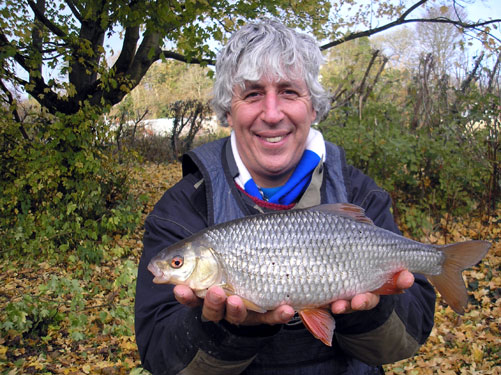Labour’s Parliamentary Angling spokesman Martin Salter used last week’s Commons debate on fisheries to describe as “ludicrous” plans by Natural England to re-introduce the beaver to the English countryside.
The Reading West MP highlighted the new fish passage regulations and proposed new rules governing hydropower schemes which are designed to remove obstructions to migrating fish seeking spawning grounds.
In his speech, Mr Salter said:-
“The current situation is ludicrous. On the one hand, we are seeking to ensure that migratory fish can run the rivers and reach the spawning grounds. On the other, Natural England talks of reintroducing the beaver, the one creature which, by creating dams, will ensure that all our legislation on fish passes becomes absolutely worthless. If we really have to introduce endangered species, why do we not take the DNA of Tyrannosaurus Rex or the wolf and bring them back to Britain? There must come a point at which reality impinges on what Natural England seeks to do.”
Back in March, Natural England and the People’s Trust for Endangered Species published a feasibility study into the re-introduction of the European beaver and acknowledged the “contribution that beavers make to river and wetland management.” The study claimed that “it is clearly feasible to re-introduce beavers into England with many consequent benefits, not least for beavers to assist with river and floodplain restoration.”
Mr Salter added:-
“These must be two of the most absurd statements uttered by a publicly funded body in recent years. Quite clearly Natural England envisages an army of highly literate beavers in council uniforms carefully consulting maps of flood risk sites before deciding which trees to chop down and where to build their dams !”
“In reality, these are four stone giant rodents with a genetic programme set to cause deforestation and flooding. Hardly a priority for the English countryside at a time when we are trying to plant more trees and alleviate the effects of the worst flooding many communities have ever experienced.”
“An adult beaver can bring down a 10 inch wide tree in under an hour, and a single beaver family will fell up to 300 trees a year. In the upper Danube region of Germany, beavers have caused £5 million of damage and they are now being culled.”
“In Scotland, where a limited release programme has already caused great controversy, the Tweed salmon fishery alone is worth an estimate £100 million to the local economy. In the south of England, the rivers Test and Itchen generate over £3 million between them and are situated close to the New Forest, one of the proposed release sites. Further west in the New Forest we have the Hampshire Avon, perhaps the most famous angling river in England. It is not just fish such as salmon and sea-trout that could fail to reach their spawning grounds due to beaver dams – most river species including chub, barbel, roach and dace will migrate considerable distances to find suitable sites.”
Other proposed release locations in the Natural England study include the Weald of Kent, the Peak District, the Forest of Bowland and, incredibly, the Lake District.
Mr Salter added:-
“The prospect of unconstrained beaver dams raising flood water levels still higher will be greeted as a sick joke by people in Cumbria who are still clearing up the wreckage of the November flooding.






